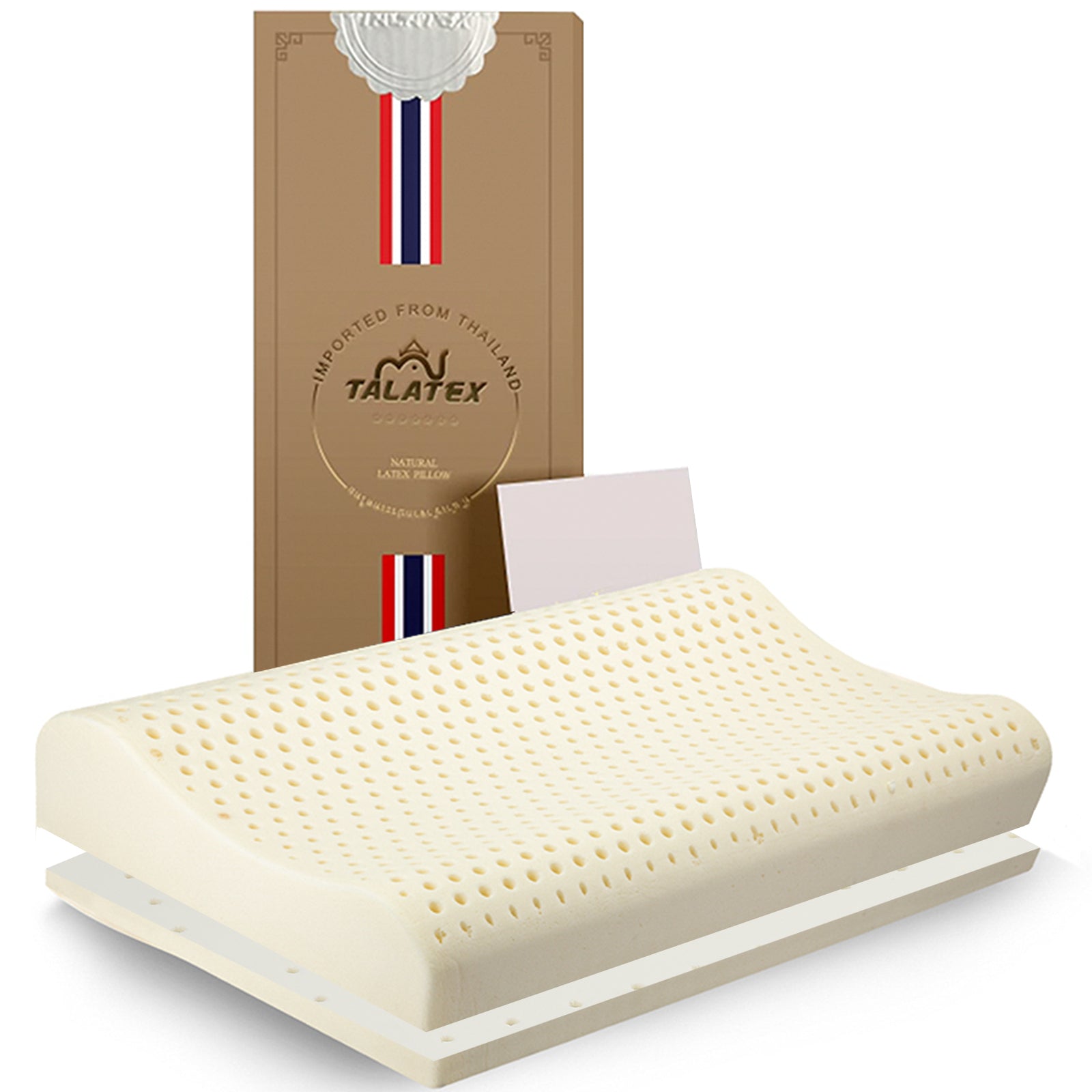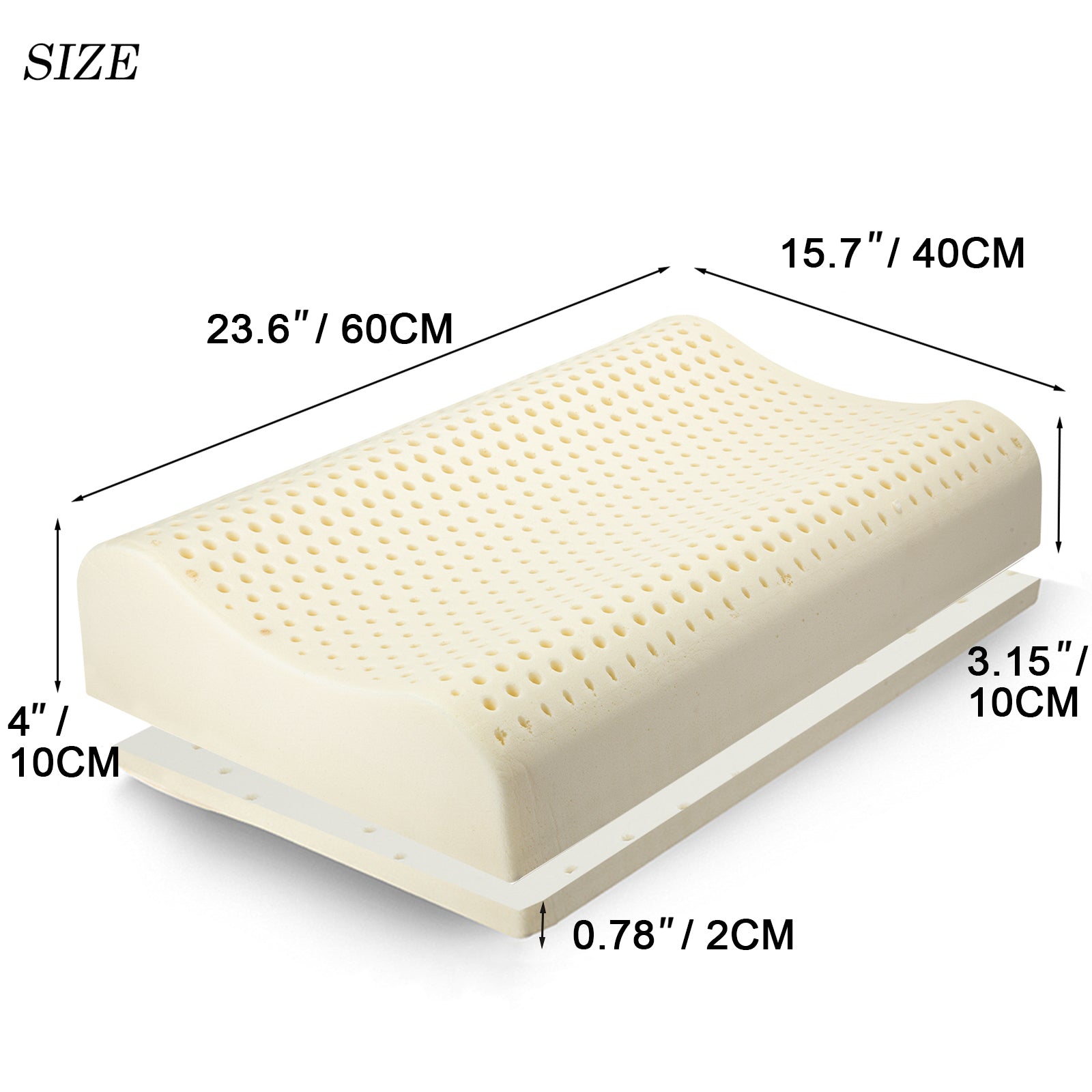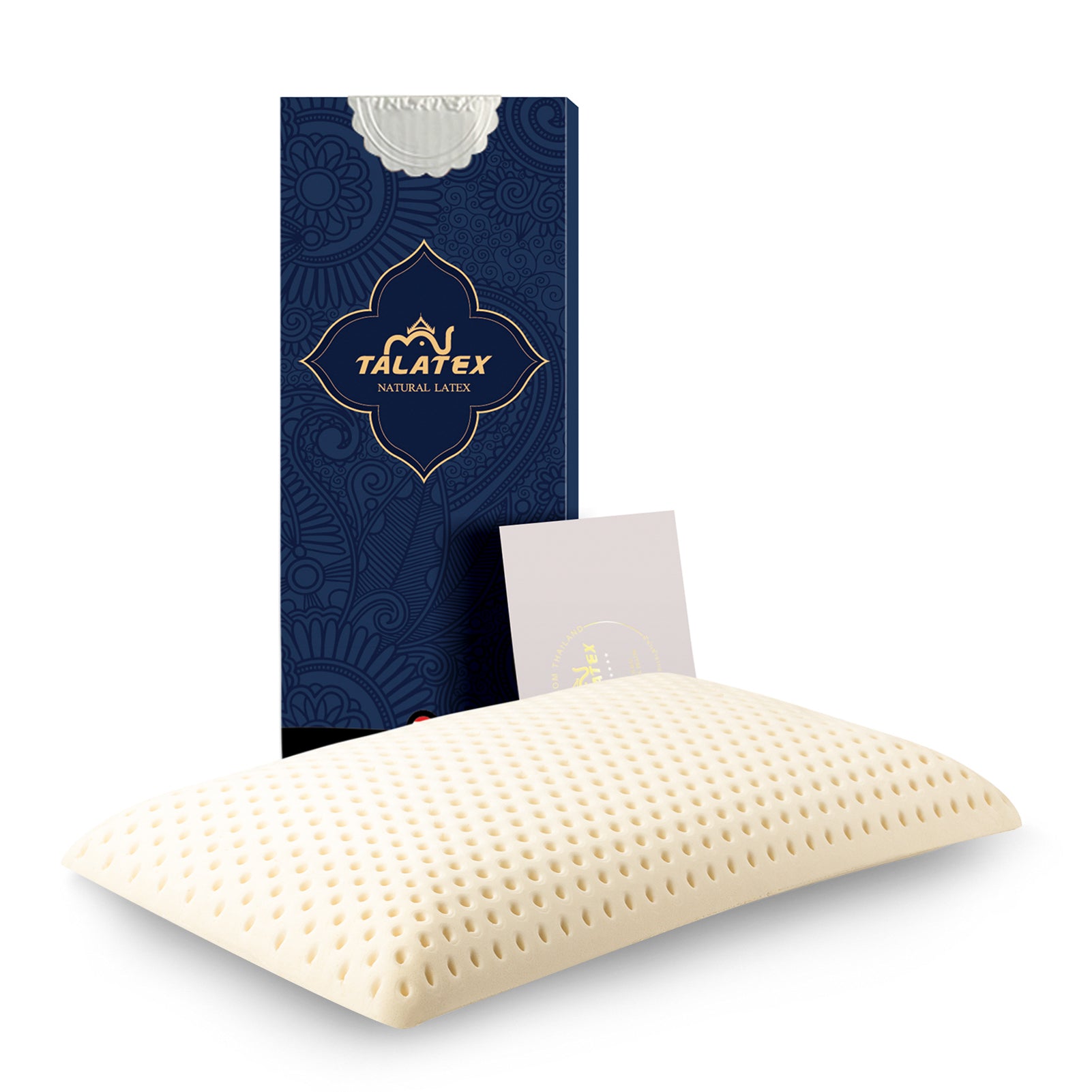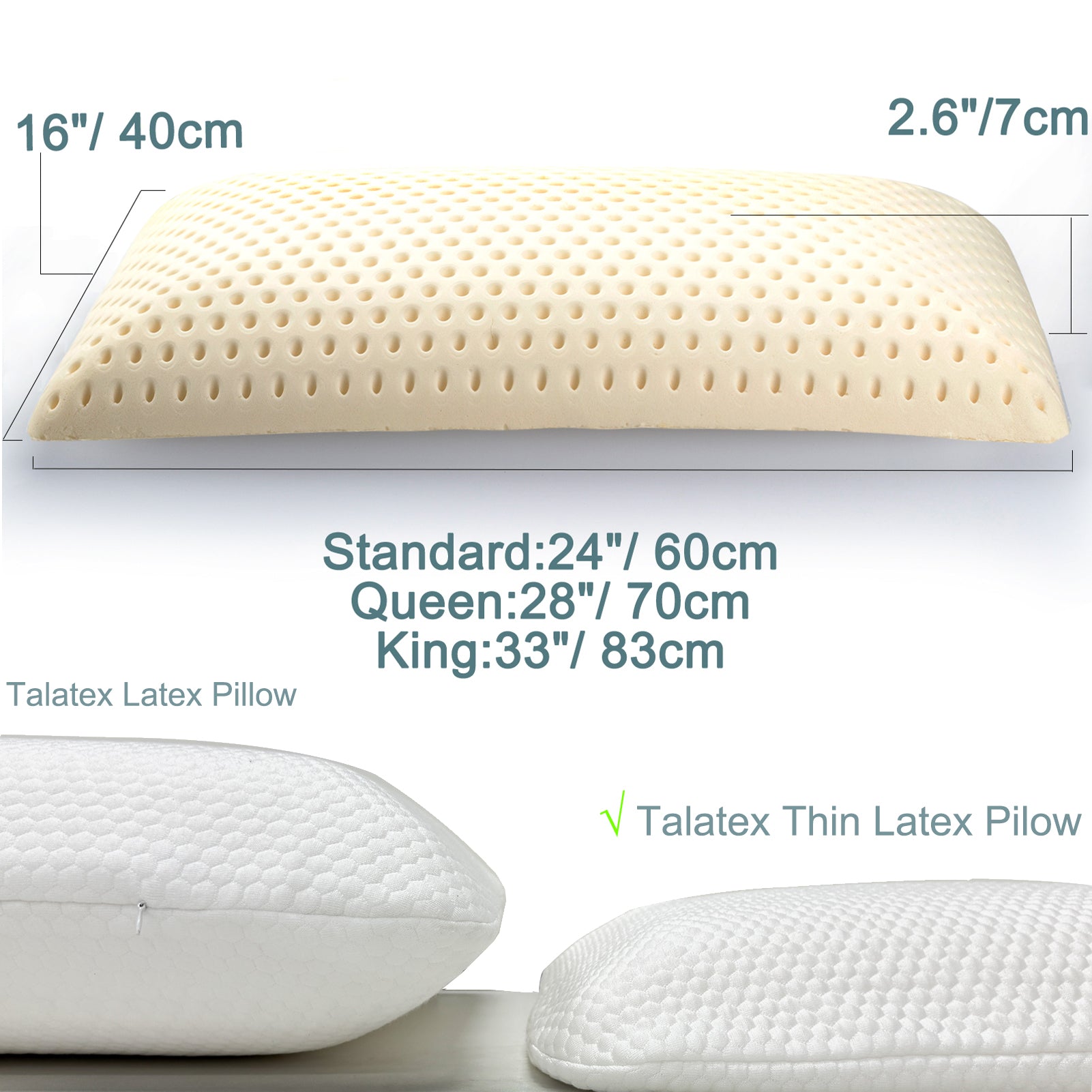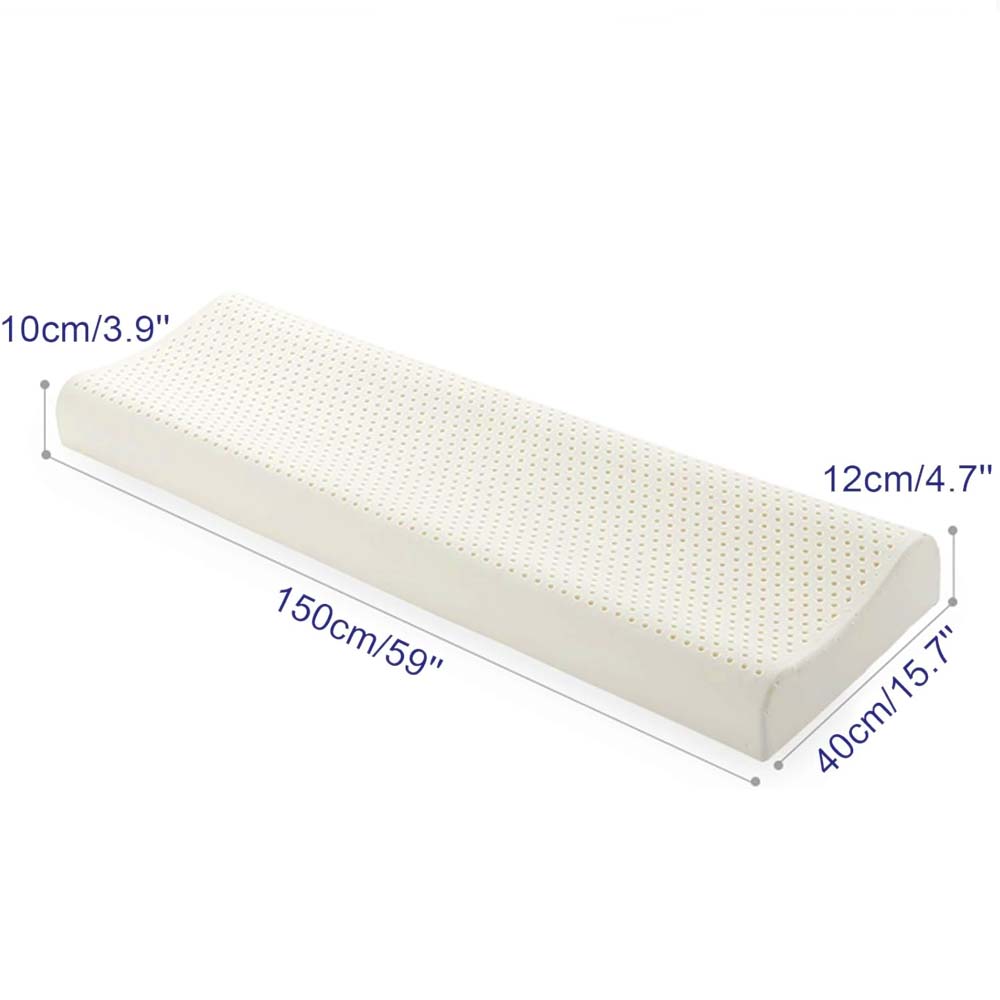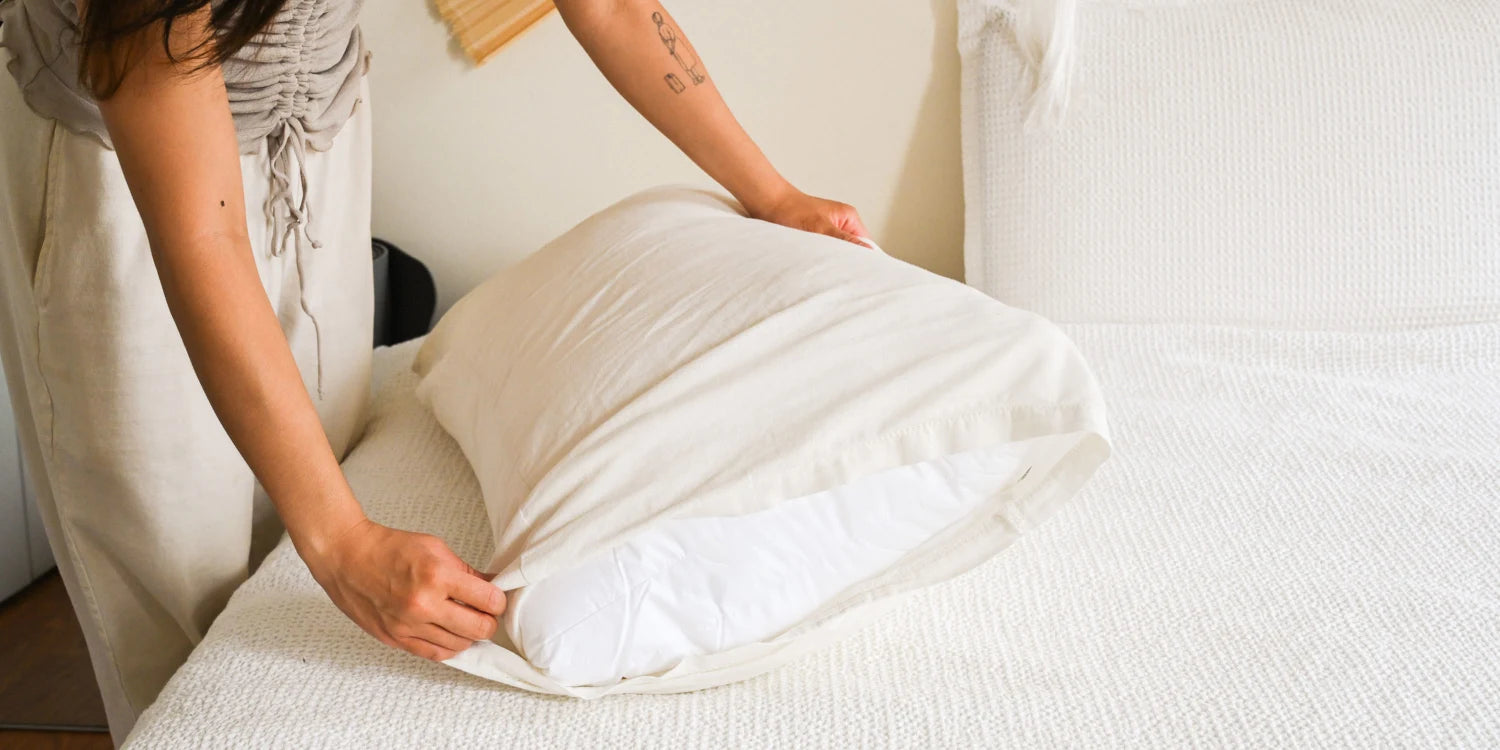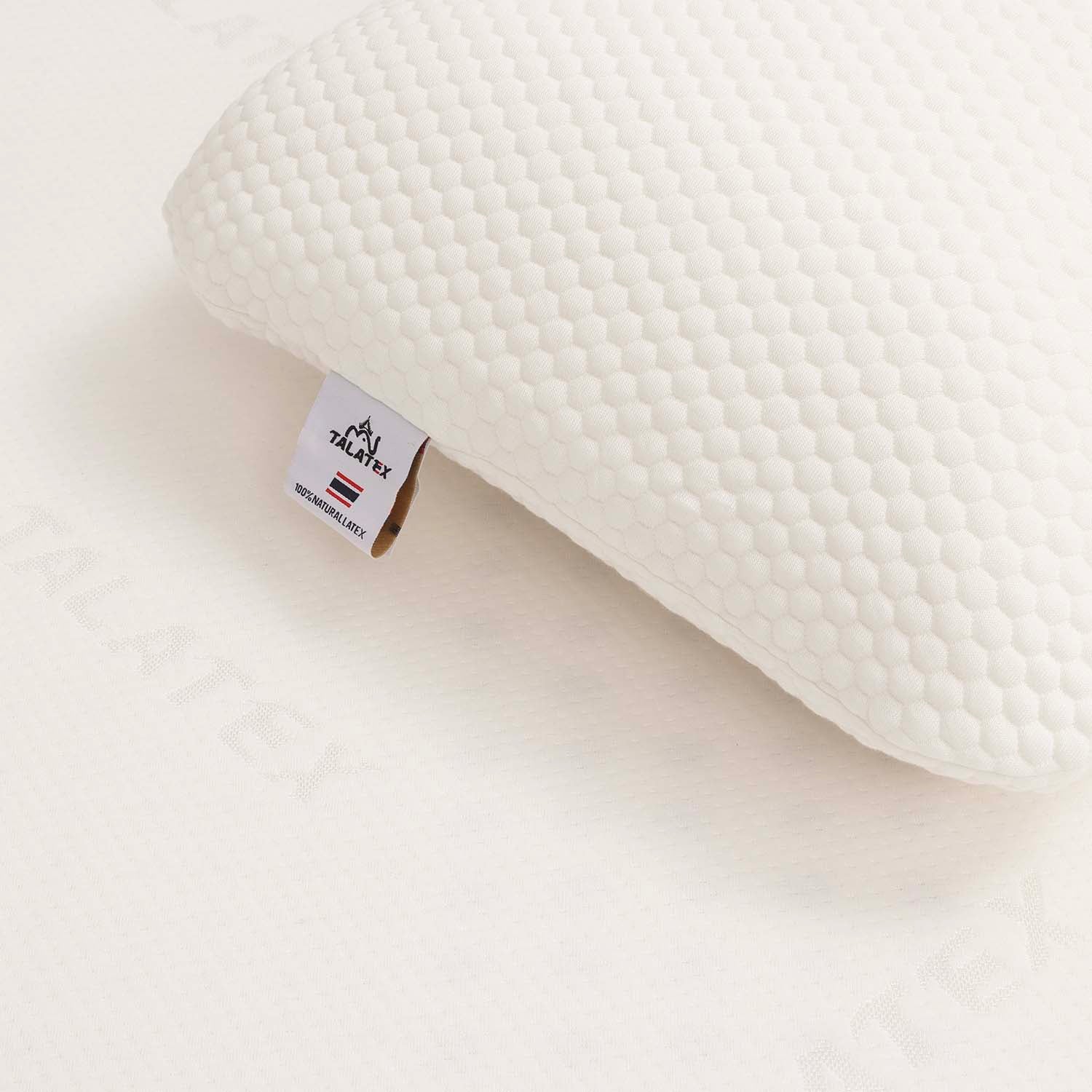Due to the inherent qualities of natural materials, slight variances in the weight of the pillows can occur. Rest assured, these variations fall within a normal range and do not affect the overall quality and performance of the product.
Personal comfort is paramount, and pillow firmness is a significant aspect of that. Our pillows are designed to provide a balanced level of support and comfort, aiming to cater to a wide range of sleep preferences. Below is a detailed chart of the weights and their acceptable ranges for our different types of pillows:
Talalay Process:
Standard
Soft: 0.95 kg (0.9025-0.9975 kg)
Medium Soft: 1.1 kg (1.045-1.155 kg)
Firm: 1.3 kg (1.235-1.365 kg)
Queen
Soft: 1.15 kg (1.0925-1.2075 kg)
Medium Soft: 1.3 kg (1.235-1.365 kg)
Firm: 1.45 kg (1.3775-1.5225 kg)
King
Soft: 1.3 kg (1.235-1.365 kg)
Medium Soft: 1.55 kg (1.4725-1.6275 kg)
Firm: 1.75 kg (1.6625-1.8375 kg)
Dunlop Process:
Standard
Medium Firm: 1.15 kg (1.0925-1.2075 kg)
Extra Firm: 1.35 kg (1.2825-1.4175 kg)
Queen
Medium Firm: 1.45 kg (1.3775-1.5225 kg)
Extra Firm: 1.6 kg (1.52-1.68 kg)
Ergonomic:
Standard: 1 kg + 0.2 kg (1.14-1.26 kg)
Queen: 1.6 kg + 0.2 kg (1.71-1.89 kg)
Hope this information helps in understanding the natural variances in the pillows.
FAQ
Tips for Better Sleep
Sleep significantly impacts our mood, appetite, working efficiency, and physical energy. A good night's sleep helps us wake up alert, refreshed, and ready to face the day’s challenges.
Factors such as excessive exposure to blue light, eating too close to bedtime, high caffeine and alcohol intake, and irregular sleeping patterns can contribute to insomnia and other sleep disorders.
While medications can provide short-term relief from insomnia, they may have side effects that can be detrimental to your overall well-being. It's important to use them cautiously and consider other remedies as well.
Limit screen time: Avoid using phones, computers, or any blue-light sources an hour before bed to prevent stimulating your brain.
Watch your diet: Avoid going to bed hungry or overly full. Refrain from eating meals a few hours before sleep.
Monitor caffeine and alcohol: If you are sensitive to caffeine, avoid drinking coffee or tea in the afternoon. Also, limit alcohol intake.
Regulate nap time: Short naps are fine, but sleeping too much during the day can disrupt your nighttime sleep pattern.
Exercise wisely: Regular exercise can help you fall asleep faster, but avoid working out right before bed as it might be stimulating.
A good pillow and a comfortable mattress are essential for a restful night’s sleep. They provide the necessary support and comfort, paving the way for sweet dreams.


























